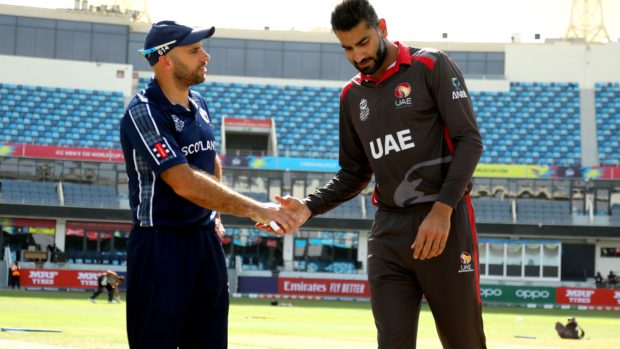Nobody will be surprised by the confirmation from the International Cricket Council that the T20 World Cup in Australia has been postponed due to the Covid-19 pandemic.
If anything, it was surprising it took the global governing body so long to decide it was unfeasible to have 16 teams – including Scotland – participating in Australia in October.
However, the announcement brings into sharp focus the problems likely to be faced by Associate countries in the future in arranging high-profile matches with Full Members.
In essence, with the commitment to the Indian Premier League in the spring, Test matches in the summer and world competitions in the autumn, there is going to be a very intensive programme for the leading teams between now and the end of 2023.
Where that leaves the likes of the Scots, the Dutch and other emerging nations is unclear. But Kyle Coetzer’s men have now been left in a situation where they will not play a single major ODI throughout 2020: a massively disappointing state of affairs.
At Monday’s meeting of the IBC Board – the commercial subsidiary of the ICC – windows for the next three ICC men’s events were also agreed to bring clarity to the calendar and give the sport the best possible opportunity over the next three years to recover from the disruption caused by the pandemic.
The tournaments are now scheduled as follows: the next T20 World Cup will be held in October and November 2021 with the final on November 14.
That will be followed by another T20 World Cup just 12 months later, with the final on November 13 2022, followed by the 50-over World Cup – which England won last summer – in India with the final being held on November 26 in 2023.
The IBC Board agreed to continue to monitor the rapidly changing situation and assess all the information available to make a considered decision on future hosts to ensure the sport is able to stage safe and successful global events in 2021 and 2022.
The ICC’s chief executive Manu Sawhney said: “We have undertaken a comprehensive and complex contingency planning exercise and through this process, our number one priority has been to protect the health and safety of everyone involved in the sport.
“The decision to postpone the ICC Men’s T20 World Cup was taken after careful consideration of all of the options available to us and gives us the best possible opportunity of delivering two safe and successful T20 World Cups for fans.
“Our members now have the clarity they need around event windows to enable them to reschedule lost bilateral and domestic cricket.
“Moving the men’s World Cup to a later window is a critical element of this and gives us a better chance of maintaining the integrity of the qualification process.
“This additional time will be used to reschedule games that might be lost because of the pandemic ensuring qualification can be decided on the field of play.
“Throughout this process we have worked closely with our key stakeholders including governments, members, broadcasters, partners and medical experts to enable us to reach a collective decision for the good of the game and our fans.”
It means the sport must now cross its fingers for what is a packed programme in the next few years. And one which places it directly in competition with other pursuits.
